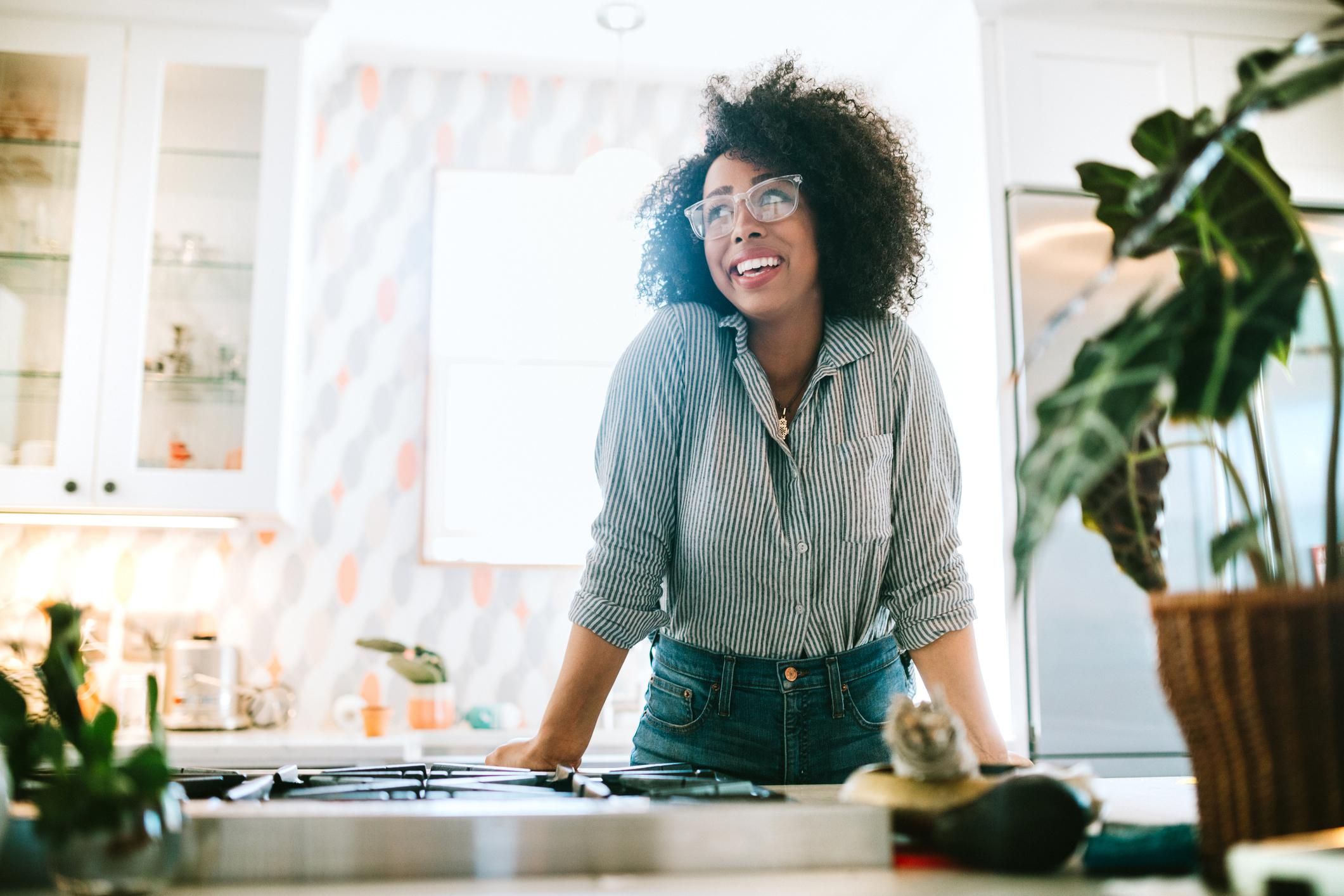Finance
If you're looking to buy a home but fear that you won't be able to due to bad credit, you aren't alone. While the question might be, "Can I buy a home with bad credit?", you might be surprised to learn that the answer isn't as implausible as you might think. The average credit score for home buyers in America is at a staggering high of 731, but most home buyers can qualify for conventional loans with a credit score of at least 620. If your credit score falls below 620 or you lack a credit history all hope for owning a home is not lost.
Luckily, there are numerous paths you can take to become a homeowner.
Delay Homeownership To Repair Your Credit
Getty Images
Repairing your credit score is easier said than done, but if you're not in a race to own a home this might be your best option. If you're aiming to apply for a conventional loan, then reaching a FICO credit score above 620 should be a priority. The higher your credit score, the more likely creditors will extend credit and you'll face lower interest rates. Review your full credit report, dispute any errors, and make plans to make on-time payments for existing debt. If you're feeling overwhelmed, consider hiring a credit counselor who's experienced with repairing credit.
Accept High-Interest Rates
If you have bad credit, accepting a high mortgage interest rate is a possible solution for your homeownership woes, but it may come to haunt you in the future. Mortgage lenders consider your credit score when deciding you qualify for a loan and determining your interest rates. A high credit score signifies to credit lenders that you're less likely to default on your mortgage loan, so they provide lower interest rates. When your credit score is low, lenders perceive lending to you as a risk and require a high interest rate to offset the extra risk they're taking on. In the long-term, these higher interest rates can lead to you paying thousands of dollars more in mortgage payments than if you had a low interest rate.
Save For A Large Down Payment
Getty Images
When you make a down payment on a house, that means you are paying a lump sum amount upfront to purchase a house. A down payment is usually expressed as a percentage of the full price of the house, and the minimum down payment varies depending on the lender and personal credit history. But, choosing to pay a downpayment of 20% can improve your odds at qualifying for a decent mortgage rate from a conventional lender, despite having bad credit.
Consider An FHA Loan
FHA loans are insured by the Federal Housing Administration and protect lenders from defaults on payments. This protection makes it easier to meet lender qualifications and results in lenders providing lower interest rates. This is a perfect option for borrowers who have a credit score of at least 580. To qualify for FHA loans, there is a typical requirement of a minimum of 3.5%. A great part about an FHA loan is the ability to still qualify for a loan despite a history of bankruptcy or other financial problems.
If you're thinking about applying for an FHA loan, it's good to know that they're available with 30-year or 15-year terms. Pretty much, you're estimated to pay off your loan within 30 or 15 years with regular payments depending on the loan term you choose. Also, you have the option to receive fixed or adjustable rates on your loan.
Take Advantage Of Seller Financing
Getty Images
Taking advantage of seller financing is a phenomenal option for someone with lackluster credit because it doesn't involve a bank. The seller and buyer make the payment arrangement between themselves and the seller finances the purchase for the buyer. When purchasing a home through seller financing, it's important to hire professionals to draw up a promissory note and contract stating the interest rates, payment schedule, and payment default consequences. This method of financing doesn't involve a transfer of principal from buyer to seller, but it's an agreement that the buyer will pay a sum of money over an agreed-upon period.
For some people, the purchase of a house might be the biggest purchase they'll ever make. Owning a house is seen as a sign of financial stability and it's associated with the "American Dream" causing people to hastily buy a house. People may rush into buying a house, but it's still a major commitment that shouldn't be taken lightly, regardless of your credit history.
Are you a member of our insiders squad? Join us in the xoTribe Members Community today!
Featured image by RyanJLane/Getty Images
From Your Site Articles
- I Raised My Credit Score 585 To 700 In 12 Months - xoNecole ... ›
- How To Build Your Credit Score From 547 To 800+ - xoNecole ... ›
- This Woman Had Bad Credit And Debt From 25 Credit Cards...She ... ›
- Millennial Money Expert Tonya Rapley Says Bad Credit Kept Her ... ›
- Get The Tea On The Good, The Bad, And The Ugly Of Your Credit ... ›
Related Articles Around the Web
- How to Get a Mortgage With Bad Credit | The Ascent ›
- How To Get A Mortgage Even With Poor Or Bad Credit | Bankrate ›
- 7 best home loans for people with bad credit (starting at 500 FICO ... ›
- How to Buy a House With Bad Credit: 6 Tips ›
- How to Buy a House With Bad Credit, a Guide for First-Time Home ... ›
- 8 Tips For Buying A House With Bad Credit | Clever Girl Finance ›
- How to Buy a House With Bad Credit - NerdWallet ›
- How To Buy A House With Bad Credit: Your Home Loan Options ... ›
ALSO ON XONECOLE
